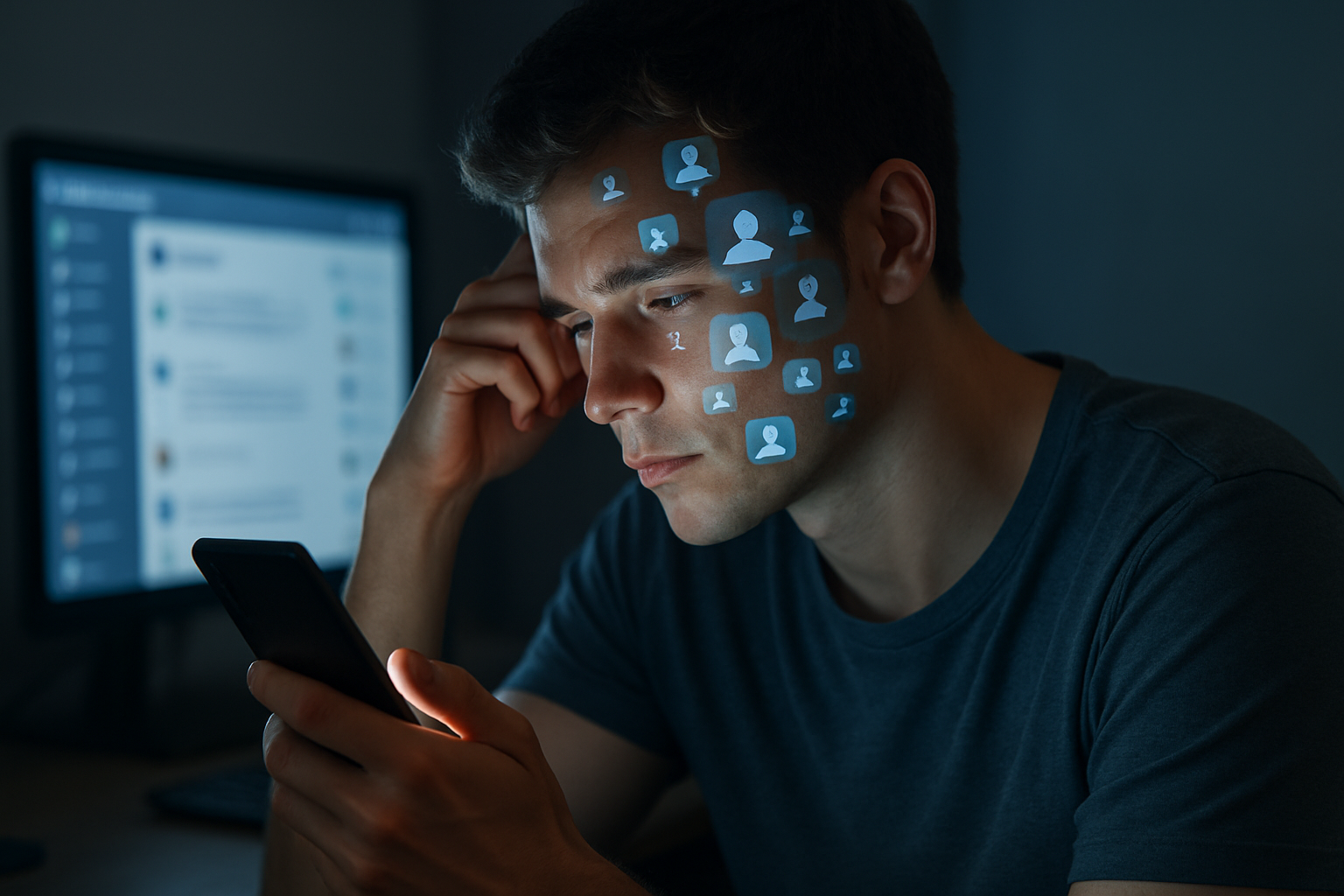Anxiety in the Digital Age: Navigating Modern Stressors
In an era dominated by smartphones, social media, and constant connectivity, anxiety has become an increasingly prevalent mental health concern. The digital landscape we navigate daily presents unique challenges to our psychological well-being, often exacerbating existing anxieties or creating new ones. From the fear of missing out (FOMO) to the pressure of curating a perfect online persona, the digital world has introduced a host of novel stressors that our minds are still learning to process. This article explores the intricate relationship between technology and anxiety, examining how our digital habits impact mental health and offering strategies for maintaining balance in an always-on world.

Research indicates that excessive smartphone use and social media engagement are correlated with increased levels of anxiety and depression, particularly among younger generations. The dopamine-driven feedback loops created by likes, comments, and notifications can lead to addictive behaviours and heightened stress when these digital validations are not received.
The Impact of Information Overload
One of the most significant contributors to digital-age anxiety is the sheer volume of information we encounter daily. News feeds, email inboxes, and messaging apps bombard us with a constant stream of data, much of it negative or anxiety-inducing. This information overload can lead to decision fatigue, decreased productivity, and a pervasive sense of being overwhelmed.
Moreover, the ease of access to health information online has given rise to cyberchondria – excessive anxiety about one’s health fueled by online symptom-checking and self-diagnosis. While the internet can be a valuable resource for health information, it can also amplify health-related fears and lead to unnecessary distress.
Social Media and the Comparison Trap
Social media platforms have revolutionised the way we connect and share information, but they’ve also created new avenues for anxiety to manifest. The curated nature of social media posts often presents an idealised version of others’ lives, leading to unrealistic comparisons and feelings of inadequacy.
The phenomenon of FOMO (Fear of Missing Out) has become particularly pronounced in the social media age. Constant exposure to friends’ activities and experiences can create a nagging anxiety that one is missing out on important events or opportunities. This fear can drive compulsive checking of social media and a persistent sense of dissatisfaction with one’s own life.
Digital Detox: Finding Balance in a Connected World
As awareness of digital-induced anxiety grows, so too does the popularity of digital detoxes – periods of intentional disconnection from technology. These breaks can range from a few hours to several days and are designed to help individuals reset their relationship with digital devices.
Research suggests that even short periods of disconnection can have significant benefits for mental health. Participants in digital detox studies have reported reduced stress levels, improved sleep quality, and increased mindfulness. However, the challenge lies in maintaining these benefits once re-entering the digital world.
Mindful Technology Use: Strategies for Digital Wellness
Rather than advocating for complete technological abstinence, experts increasingly recommend mindful technology use as a sustainable approach to digital wellness. This involves being intentional about when and how we engage with digital devices and platforms.
Some effective strategies include:
-
Setting boundaries: Establishing specific times for checking emails and social media, and creating tech-free zones in the home.
-
Practising digital mindfulness: Being aware of our emotional state when using technology and recognising when it’s causing stress or anxiety.
-
Curating digital environments: Unfollowing accounts that trigger negative emotions and cultivating a positive online space.
-
Embracing real-world connections: Prioritising face-to-face interactions and activities that don’t involve screens.
The Role of Technology in Anxiety Management
Ironically, technology itself can play a crucial role in managing digital-age anxiety. A growing number of mental health apps and online therapy platforms are making support more accessible than ever before. These digital tools offer everything from guided meditations to cognitive behavioural therapy exercises, providing users with on-demand resources for anxiety management.
However, it’s important to approach these tools with discernment. While many are evidence-based and can be highly effective, the digital mental health space is largely unregulated. Users should seek recommendations from mental health professionals and look for apps that have been validated through clinical studies.
Building Digital Resilience for the Future
As our world becomes increasingly digitised, developing digital resilience – the ability to navigate the online world in a healthy, adaptive way – is crucial. This involves not only managing our own digital habits but also advocating for more ethical design in technology. Many experts argue that tech companies have a responsibility to create products that prioritise user well-being over engagement metrics.
Education also plays a vital role in building digital resilience. Teaching digital literacy and healthy technology habits from a young age can help future generations better navigate the complexities of the digital landscape. Schools and workplaces are beginning to incorporate digital wellness into their curricula and employee well-being programmes, recognising the importance of these skills in modern life.
In conclusion, while the digital age has introduced new challenges for mental health, it has also created opportunities for innovative approaches to well-being. By understanding the unique stressors of our connected world and adopting mindful strategies for technology use, we can harness the benefits of digital innovation while safeguarding our mental health. The key lies in finding a balance that allows us to stay connected without becoming overwhelmed – a skill that will only become more crucial as technology continues to evolve and integrate into every aspect of our lives.




